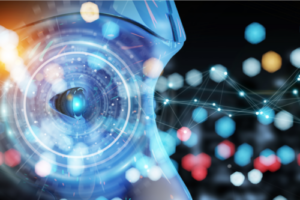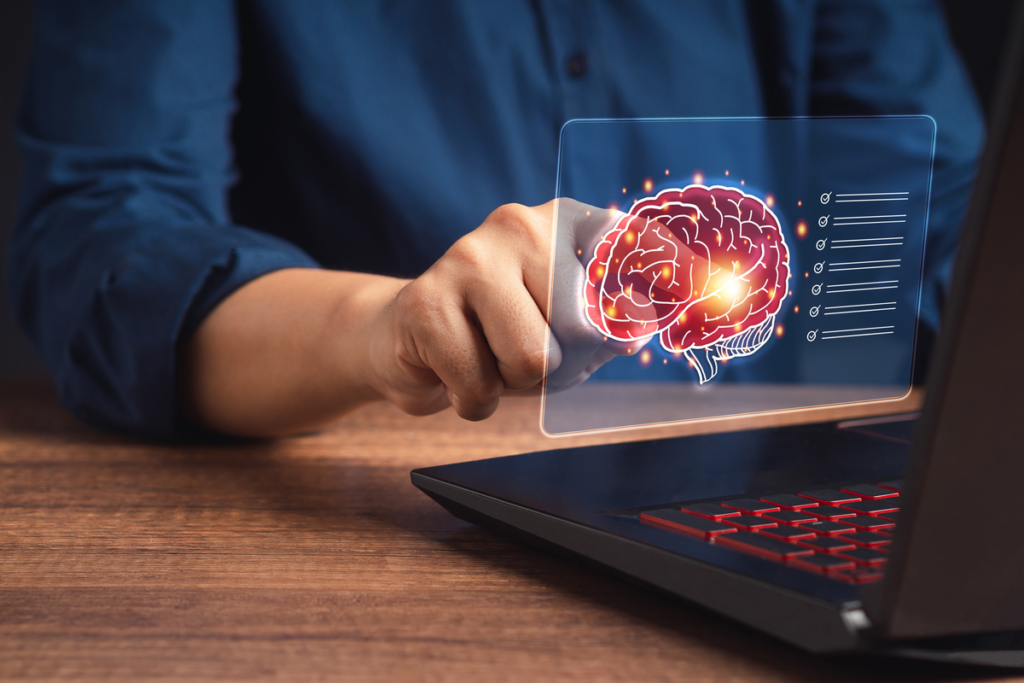ChatGPT: The Ultimate Artificial Intelligence?


Written and verified by the psychologist Valeria Sabater
Every year, there are new advances in science and technology. Artificial intelligence (AI) is the greatest advance to date. It’s a universe of programming capable of automating tasks and solving challenges in all areas.
It means our devices are going to be dominated by increasingly complex algorithms capable of making our lives (apparently) easier. In recent months, another sophisticated ‘toy’ has appeared on the scene, known as ChatGPT.
As the word itself indicates, it’s a chatbot specialized in dialogue and interaction with humans. It responds to complex questions and is capable of carrying out everything from writing texts to programming requests. Indeed, its qualities are endless and it’s left half the world speechless.
This resource already has many thousands of users. Moreover, many technology companies have invested millions of dollars in its development. However, is it as fascinating as it seems? More importantly, how will this type of engineering, aimed at solving tasks that, up to now, we’ve been doing ourselves, change our lives?
ChatGPT is an artificial intelligence trained to hold conversations. But, experts claim that not everything it says is reliable.

What’s ChatGPT?
ChatGPT was created by the OpenAI artificial intelligence laboratory. It specializes in dialogue dynamics and conversational interaction. It was launched in November 2022 and so far has been a tremendous success.
It’s a tool that’s been trained with millions of texts. This makes it easy for users to have a conversation with it that’s both realistic and helpful. In fact, its purpose is to provide us with all the information we might need at any given time. In addition, it’s able to explain any data in detail. Therefore, it could put Google in a rather awkward position.
This technology, founded by Elon Musk, promises to make our lives easier. It can solve mathematical problems, program and develop codes, write texts of any kind, and guide us in any area or discipline. It’s a high-impact innovation that’s provoked both hope and fear. Just think of the number of jobs it could replace.
The predecessors of ChatGPT were bias-laden algorithms that often provided offensive and even misleading responses. They’ve almost disappeared with this new version.
Positive aspects
The artificial intelligence of this new technological resource is well-tuned, and it can hold optimal conversations. Indeed, the answers that it offers to our doubts and questions are accurate, detailed, and respectful.
A few years ago, these types of chatbots learned what they were processing on the Internet, so it was common to find racist and offensive responses.
However, ChatGPT is capable of rejecting even unethical queries. What’s more, it’s even able to admit its own mistakes. Therefore, it presents a sophisticated metacognition.
Another noteworthy aspect is that it monitors and analyzes the questions asked. So, if the questions asked are related to each other, it knows how to synthesize and speed up the answers so as not to repeat itself. Without a doubt, it’s an analytical technology with excellent self-reflection and meta-analysis capabilities.
We can ask ChatGPT to write scripts, address us in a more informal way, or even use a tonality typical of our specific language.
Can it be trusted?
Those who’ve used this new technology claim that it’s a prodigious innovation. That said, it’s still in its infancy. This fact is recognized by its developers. Indeed, they realize that, although it can even perform meta-reasoning, there are limitations they need to consider.
1. When it doesn’t know it makes it up
When these types of technologies first emerge, they’re usually put to the test in every possible way. Analysts and developers know how to test their algorithms. One thing they’ve noticed with ChatGPT is that when it can’t solve a question, it gets inventive.
As we said earlier, it admits its mistakes. However, it’s also programmed to offer answers, and when this isn’t possible and it gets stuck, it invents answers. A really human habit.
2. It can’t offer information after 2021
This artificial intelligence was trained during the years leading up to 2021. Therefore, it’s unable to provide information about events or celebrities after that date.
3. It presents an algorithmic bias
The University of Oxford (UK) conducted a study on the prevalence of algorithmic biases in artificial intelligence. They mentioned the need for them to be corrected in respect of certain systematic errors. These involve information offered by the computer that privileges a social group. For example white people or the male population.
For instance, if it’s asked who won the 2018 World Cup, it’ll assume that it’s being asked about soccer and men’s teams.
4. At the moment, Google is more effective
Obviously, we must give it time but, to date, the Google matrix is more reliable and effective. Indeed, it’s still the most effective search engine and the most used. However, ChatGPT has only been with us for a short time.

The future
It’s evident that we’re at the dawn of a great awakening consciousness, that of artificial intelligence. These technologies are trained for years by being given huge amounts of information.
Therefore, they end up becoming enormous brains geared toward giving answers, completing tasks, and providing us with the help we need.
However, although they already form part of our lives, they’ll soon automate multiple jobs and start making decisions for us. For this reason, there are still ethical issues that need to be resolved.
It’s also worth reflecting on whether it’s lawful for a technology to replace tasks and processes that, until now, were the exclusive domain of humans.
All cited sources were thoroughly reviewed by our team to ensure their quality, reliability, currency, and validity. The bibliography of this article was considered reliable and of academic or scientific accuracy.
- Garcia, Megan (2016). “Racist in the Machine”. World Policy Journal. 33 (4): 111–117. doi:10.1215/07402775-3813015
- Ziewitz, Malte (2016). “Governing Algorithms: Myth, Mess, and Methods”. Science, Technology, & Human Values. 41 (1): 3–16. doi:10.1177/0162243915608948
- Sharma, Ax (December 6, 2022). “OpenAI’s new ChatGPT bot: 10 dangerous things it’s capable of”, Bleeping Computer
- Schulman, John; Wolski, Filip; Dhariwal, Prafulla; Radford, Alec; Klimov, Oleg (2017). “Proximal Policy Optimization Algorithms”. arXiv:1707.0634
This text is provided for informational purposes only and does not replace consultation with a professional. If in doubt, consult your specialist.








